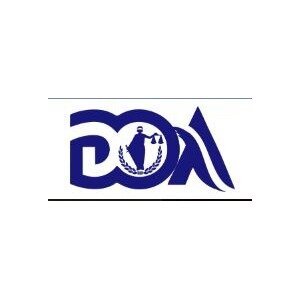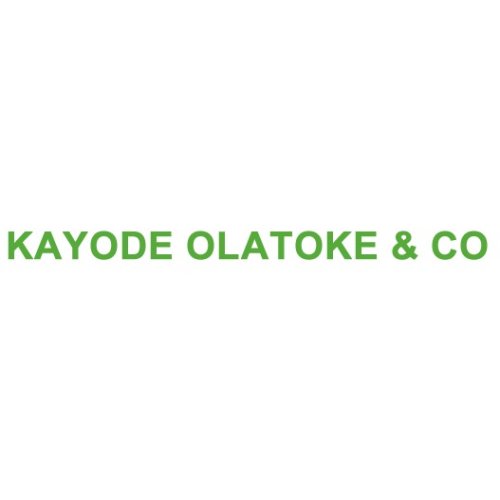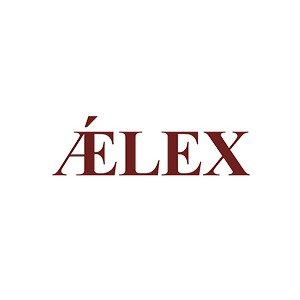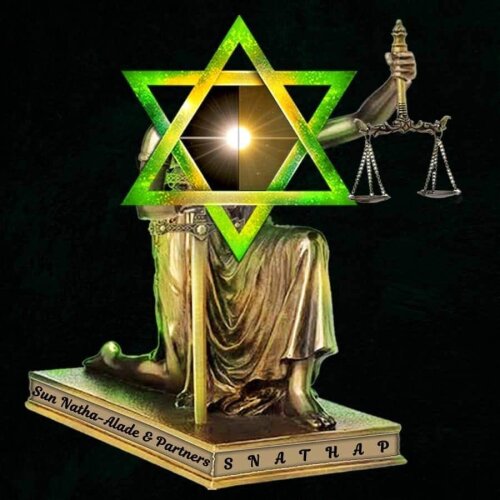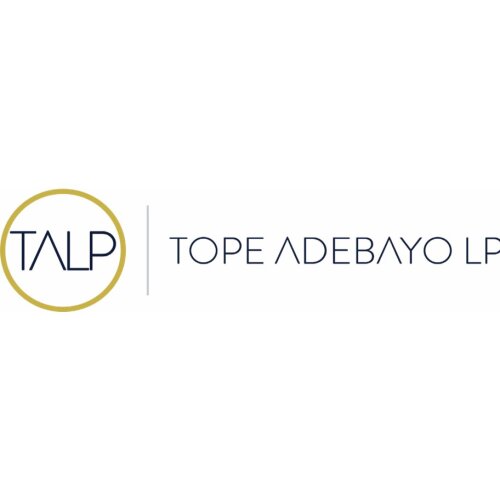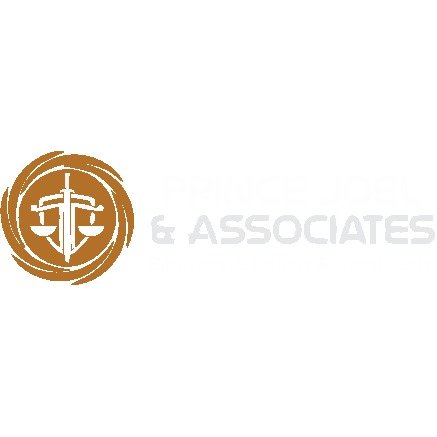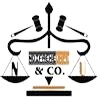Best Marine Insurance Lawyers in Nigeria
Share your needs with us, get contacted by law firms.
Free. Takes 2 min.
Or refine your search by selecting a city:
List of the best lawyers in Nigeria
Legal guides written by Adeola Oyinlade & Co:
- Procedure and Requirements for Work Permit and Visas in Nigeria
- The Step-By-Step Procedure of How to Apply for Microfinance Bank License Online in Nigeria
- How to Ensure the Smooth Recognition and Enforcement of Foreign Judgments in Nigeria
About Marine Insurance Law in Nigeria
Marine insurance is a vital component of the Nigerian maritime and shipping industry, providing coverage for the loss or damage of ships, cargo, terminals, and any transport by which property is transferred, acquired, or held between points of origin and final destination. Governed by the Marine Insurance Act 1961, as well as various international conventions to which Nigeria is a signatory, marine insurance law in Nigeria sets the framework for legal matters related to maritime activities. Marine insurance policies are critical for protecting the financial interests of ship and cargo owners against the systemic and operational risks involved in maritime navigation and transportation.
Why You May Need a Lawyer
Engaging a lawyer specializing in marine insurance can be beneficial in various scenarios:
- If you are a shipowner, cargo owner, or freight forwarder facing a dispute regarding a marine insurance claim.
- When draft, negotiate, or interpret complex marine insurance contracts and policies.
- If you encounter coverage issues, such as allegations of policy breaches or questions regarding exclusions, conditions, and warranties.
- To assist with the legal implications of marine casualties, including accidents, piracy, or natural disasters.
- If you are involved in subrogation claims where insurers seek to recover the amount they have paid to the insured from a third party responsible for the loss.
Local Laws Overview
Nigeria's marine insurance laws are a mix of local legislation and international conventions. Some key aspects include:
- The Marine Insurance Act 1961: This is the central legislation governing the contractual obligations and implications of marine insurance policies in Nigeria.
- Compliance with international maritime conventions such as the International Maritime Organization (IMO) standards.
- Local guidelines issued by the National Insurance Commission (NAICOM), which oversee and regulate marine insurance practices.
- The Nigerian Ports Authority (NPA) and its role in ensuring the operational framework for shipping activities.
- Preference for Alternative Dispute Resolution (ADR) mechanisms in resolving insurance disputes before resorting to litigation.
Frequently Asked Questions
What is marine insurance?
Marine insurance is a type of insurance designed to cover losses or damage to ships, cargo, and any mode of transportation involved in transferring goods from one place to another.
Who needs marine insurance?
Any party involved in the shipping process, including shipowners, cargo owners, exporters, importers, and freight forwarders, may require marine insurance to mitigate financial risks.
What types of risks are covered under marine insurance policies?
Typical risks include loss or damage due to perils of the sea, theft, piracy, fire, collision, and sinking. Specific coverage will depend on the terms of the policy.
Are marine insurance policies mandatory in Nigeria?
While not always mandatory, having marine insurance is strongly advisable for those engaged in shipping as it helps protect against substantial financial loss.
What should I consider when selecting a marine insurance policy?
Consider factors such as the scope of coverage, premium costs, the credibility of the insurer, and specific exclusions or conditions attached to the policy.
What is the difference between hull insurance and cargo insurance?
Hull insurance covers the vessel and its equipment, while cargo insurance covers the goods being transported.
How are claims settled under marine insurance in Nigeria?
Claims are typically settled according to the terms and conditions of the policy. This often involves providing documentation of the loss and working with the insurer to assess and settle the claim.
What role does NAICOM play in marine insurance?
The National Insurance Commission (NAICOM) regulates and licenses insurance companies and ensures that they adhere to standards and practices necessary to protect policyholders.
Can I appeal a denied marine insurance claim?
Yes, you can appeal a denied claim by utilizing dispute resolution mechanisms or seeking redress through relevant courts.
How can a lawyer assist me with a marine insurance policy?
A lawyer can provide advice on the policy terms, help negotiate the best coverage deals, and represent you in case of any disputes or claims against the insurer.
Additional Resources
For further resources, consider contacting the following:
- The National Insurance Commission (NAICOM): The regulatory authority for insurance in Nigeria.
- The Nigerian Maritime Administration and Safety Agency (NIMASA): Provides guidelines and standards for maritime operations.
- The Nigerian Bar Association: Can connect you with legal professionals specializing in marine insurance.
- Various insurance companies and brokers: They can offer advice and detailed information on marine insurance products and policies.
Next Steps
If you need legal assistance with marine insurance in Nigeria, consider these steps:
- Identify the specific area of need or dispute related to your marine insurance policy.
- Research and contact qualified lawyers or law firms specializing in marine insurance law.
- Schedule consultations to discuss your situation and evaluate your legal options.
- Compile all necessary documents and information related to your policy and claims.
- Engage a lawyer to provide representation, negotiate, and if needed, litigate on your behalf.
Lawzana helps you find the best lawyers and law firms in Nigeria through a curated and pre-screened list of qualified legal professionals. Our platform offers rankings and detailed profiles of attorneys and law firms, allowing you to compare based on practice areas, including Marine Insurance, experience, and client feedback.
Each profile includes a description of the firm's areas of practice, client reviews, team members and partners, year of establishment, spoken languages, office locations, contact information, social media presence, and any published articles or resources. Most firms on our platform speak English and are experienced in both local and international legal matters.
Get a quote from top-rated law firms in Nigeria — quickly, securely, and without unnecessary hassle.
Disclaimer:
The information provided on this page is for general informational purposes only and does not constitute legal advice. While we strive to ensure the accuracy and relevance of the content, legal information may change over time, and interpretations of the law can vary. You should always consult with a qualified legal professional for advice specific to your situation.
We disclaim all liability for actions taken or not taken based on the content of this page. If you believe any information is incorrect or outdated, please contact us, and we will review and update it where appropriate.
Browse marine insurance law firms by city in Nigeria
Refine your search by selecting a city.





